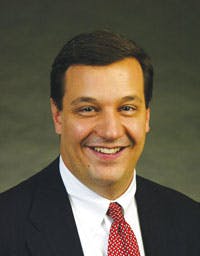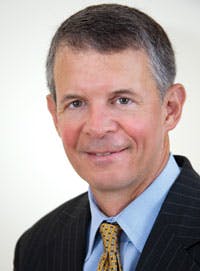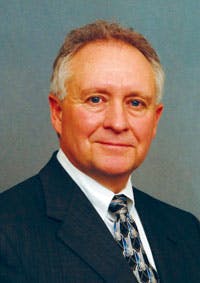Washington strategies increasingly reach beyond Capital Beltway
More US oil and gas associations are expanding their federal advocacy efforts beyond Congress and the Obama administration. Washington staff members still plan to brief new House and Senate members and their staffs and keep in touch with federal regulators as 2013 gets under way. But association leaders have intensified their grassroots activity to increasingly involve local governments, businesses—and voters.
"To win in the long term, you need to win people's hearts and minds," American Petroleum Institute Pres. Jack N. Gerard told OGJ on Jan. 11. "We have millions of advocates from outside the industry who work to educate other people on oil and gas issues. They are the ones who will push public policy in the direction we'd like to see it go."
He said federal policymakers and their staffs pay the closest attention when an individual who does not have a clear vested interest stops by to discuss increasing access to oil and gas resources on public land and beneath offshore waters, authorizing LNG exports, or approving construction of the proposed Keystone XL crude oil pipeline from Canada.
That means using Twitter, Facebook, and other social media to turn what once were simply announcements and policy positions into two-way conversations, Gerard explained. It's less now about what the industry, or a specific part of it, wants than what the individual believes are national problems and showing how developing the nation's substantial oil and gas resources can provide good solutions, he said.
"We have to be part of the organic conversation to be relevant to the American people's lives," Gerard said. "That has centered around jobs and economic recovery. We are poised not only to enter the conversation, but to also offer solutions to the concerns that are expressed. That's a big deal."
Opportunities spring from growing public recognition that technology has turned the US oil and gas resource outlook from scarcity to abundance. National leaders also acknowledge the change. "President Obama talks about it in his speeches now," said Martin E. Edwards, vice-president for legislative affairs at the Interstate Natural Gas Association of America. "It never came up during the first 2-3 years he was in the White House."
'Unavoidable truth'
Noting on Dec. 10, 2012, that former US Vice-President Al Gore called global climate change an inconvenient truth several years ago, Edwards said abundant US energy resources—particularly gas—now are "an unavoidable truth" that government policymakers shouldn't ignore. Energy's contribution to the gross domestic product during a fragile economic recovery has been "fairly major," he observed.
"Notwithstanding price, when you consider liquids and associated gas, we still have a robust situation," added INGAA Pres. Donald F. Santa. "It's competing with coal and, in advance of many environmental rules, gas is making serious inroads in the electric generation and industrial markets."
Officials from other oil and gas associations agree. "The shale revolution has brought about the industrial renaissance," Natural Gas Supply Association Pres. Skip Horvath said on Dec. 19, 2012. "While we're talking with those customers, we're focusing more on electricity generation." Demand for gas for manufacturing and electric power generation is expected to grow 1 tcf/year each for the rest of the decade, while natural gas vehicles could eventually consume 300 bcf/year, largely as LNG for heavy-duty trucks, he told OGJ.
"There's been talk the administration might move back and take a look at places where oil and gas might lead the way," Daniel T. Naatz, vice-president of federal resources and political affairs at the Independent Petroleum Association of America, said on Jan. 16. "People are seeing activity grow in North Dakota, Ohio, and Pennsylvania, and realizing there are benefits."
That growth could be reduced if the 113th Congress embarks on federal budget reform measures without considering adverse impacts of eliminating specific tax code provisions, Naatz warned. "When there's talk of reducing the corporate tax rate, most of our members aren't corporations and wouldn't benefit," he said. "Also, if these tax provisions are eliminated, independents don't have as much to spend at a time when oil and gas has been one of the economy's bright spots."
On Dec. 17, 2012, Bruce Thompson, president of the American Exploration & Production Council (AXPC), said, "Our members are passionate about developing this national resource of low-cost energy to fuel economic growth. When they realize they might be targets of new taxes, they're concerned. We hope we don't get caught up in any interim solution, and there's a reasoned discussion about tax reform."
Advocacy broadens
API is not the only oil and gas association to mobilize non-oil industry advocates. AXPC, which has larger upstream independents as its members, formed a 33-member coalition in 2012 that includes consumer and manufacturing associations in addition to state and Washington-based energy organizations.
The coalition reminded members of the 112th Congress on Nov. 28, 2012, that the intangible drilling costs federal tax exemption is a mechanism for E&P companies to recover necessary and ordinary business expenses. The provision should be preserved to encourage US oil and gas development, it said. "We want to broaden it with groups from other industries, and they've expressed interest," AXPC's Thompson told OGJ. "Our gas is important."
Farther downstream, the American Fuel & Petrochemical Manufacturers decided to develop a similarly broad coalition after management and labor groups came together in 2012 to keep two Delaware River Valley refineries open. AFPM Pres. Charles T. Drevna said this alliance persuaded the US Environmental Protection Agency to modify new source review air emissions requirements so the plants could keep operating.
"That fiscal cliff in the Delaware River Valley made many policymakers realize how far impacts could reach," Drevna said on Jan. 3. "When a family, school district, or fire department in Marcus Hook or Trainer can be affected, it's an example we can use in other parts of the country when we discuss EPA's overreach."
AFPM is using its role as the petroleum industry's products manufacturer to recruit other industries, businesses, and state and local governments to explain why readily affordable and available oil and gas matters. It held the first of what it hopes will be several 2013 events explaining this in Pittsburgh on Jan. 10, and hopes to host others. "Once Mainstream America understands what our industries contribute, we can say 'Mission Accomplished,'" Drevna told OGJ. "But we're a long way from that right now."
IPAA has had a broad advocacy program for about 15 years through affiliated state and regional oil and gas associations and its partners in the North American Prospect Expo, according to IPAA Pres. Barry Russell. It also works with nonindustry associations, he noted on Jan. 16, adding: "Everyone understands that to get broad progress, you have to work with a broad coalition."
Revisit policies
In 2013, progress will need to involve not only encouraging more US oil and gas development, but also reviewing regulations that clearly aren't working, association leaders agreed. AFPM's Drevna cited the Renewable Fuels Standard, which was mandated by the 2007 Energy Independence and Security Act.
"It basically doesn't make sense, and it's past time for it to go," Drevna said. "I think public acceptance of ethanol in its motor fuel has reached its apex. We're just starting to see how big a problem biodiesel fraud is…. Let's bring this up in congressional hearings and determine what the RFS has, and hasn't, accomplished."
More House and Senate members will need to take the initiative, suggested Lee O. Fuller, IPAA's vice-president of government relations. "With Congress gridlocked, the administration can move forward and interpret existing laws the way it likes," he told OGJ on Jan. 16. "That can shift interpretation to the courts, which might take decades, especially if a judge decides not to stay a regulation. Courts also tend to defer to the regulating agency unless they see arbitrary and capricious behavior."
National Ocean Industries Association Pres. Randall B. Luthi also noted that Congress will need to act since there's no indication that the Obama administration wants to deviate from the 5-year program it has developed for the US Outer Continental Shelf. "It's continuing to make slow progress on a southeastern environmental impact statement and geologic tests," he said on Dec. 20, 2012, adding, "But it's doing it at what almost guarantees a snail's pace."
Opening areas off Virginia and South Carolina—states that have expressed interest in leasing off their coasts—would stimulate more interest from companies willing to pay for seismic tests, Luthi suggested. "We will push for more access. Right now, the best way appears to legislate," he said.
Talking to regulators
Associations continue to work with regulators charged with implementing new rules in the meantime. Jenny Fordham, NGSA's energy markets and government affairs director, said on Dec. 19, 2012, that the US Commodity Futures Trading Commission is still dealing with questions arising from the 2010 Dodd-Frank financial regulatory reform law which affect energy producers and customers' ability to manage their costs.
"For 2013, the CFTC has a lot of discretion in regulations it has issued," she told OGJ. "We want to make sure bonafide hedging activities continue to be protected."
US crude oil and product pipelines also work closely with regulators since they're more interested in safety and environmental management than advocacy, noted Andrew J. Black, president of the Association of Oil Pipelines. Its Pipeline Information Exchange, where operators confidentially discuss their experiences following accidents, was patterned on a similar forum at annual meetings of API's Refining Department. "Liquid pipeline operators compete vigorously for commerce, but collaborate closely on safety," Black said on Dec. 14, 2012.
Petroleum liquid pipelines work with individual states on siting, but the US Pipeline and Hazardous Materials Safety Administration (PHMSA) regulates construction codes and operations, Black continued. Operators are federally required to assess risks along a pipeline's right-of-way, including flooding. They consider PHMSA a rigorous—but fair—regulator, Black said. "Audits are vigorous, but operators and inspectors can discuss conditions unique to each system," he told OGJ. "One operator said inspectors were tough, but they asked the right questions."
INGAA officials said they also feel comfortable working with the US Federal Energy Regulatory Commission. "We have a well-developed and mature set of rules to authorize gas pipeline construction, and sound economic frameworks to attract investment," Santa said. "It bodes well for us to be able to keep up with demand."
Safety emphasis
API's Gerard and NOIA's Luthi separately cited the offshore oil and gas industry's strong safety response following the 2010 Macondo deepwater well incident and oil spill in the Gulf of Mexico. They both pointed to the Center for Offshore Safety, which was established in 2011 to help offshore well operators, drilling contractors, and service and supply companies.
"I look for a continued safety emphasis from the industry as well as its regulators," Luthi said. "Establishing the center was a good step, but the West Delta 32 accident reminded people that every risk can't be eliminated. Safety is still Topic No. 1." Comments continue to arrive about ways to establish a safety culture, which some companies already have under other names, he indicated. Meanwhile, Gerard said API is considering ways to develop something similar downstream.
Its main focus, however, will be continuing its two-way conversation with the US public. "More people understand about oil and gas, and what a game-changing opportunity it is," Gerard told OGJ. "We hope this includes President Obama who, 2 years ago, called oil and gas yesterday's technology. Today, he gives it a full-throated endorsement. We need to make sure his actions match his words."
Gerard and several other association leaders told OGJ that the president's first 2013 test of such a commitment will be whether he finally approves the Keystone XL pipeline project's cross-border permit so it finally can be built. "Perhaps we'll be on the way to more shovel-ready projects it he does," AFPM's Drevna said. "If he doesn't, the only thing that will be shovel-ready will be the dead US economy, which will be ready for burial."
Gerard noted that in 2013, investing in the US future will be the next step to fulfilling people's aspirations, which are an important part of the organic national conversation. API's state petroleum councils, which formerly were left to their own devices, now work on forums that are led by sheriffs, Hispanic church leaders, and civic associations, he told OGJ. "They're the face of the public, not just the oil and gas industry," he said. "All the components are in place and functioning. Now, we'll continue to improve it."
About the Author

Nick Snow
NICK SNOW covered oil and gas in Washington for more than 30 years. He worked in several capacities for The Oil Daily and was founding editor of Petroleum Finance Week before joining OGJ as its Washington correspondent in September 2005 and becoming its full-time Washington editor in October 2007. He retired from OGJ in January 2020.









